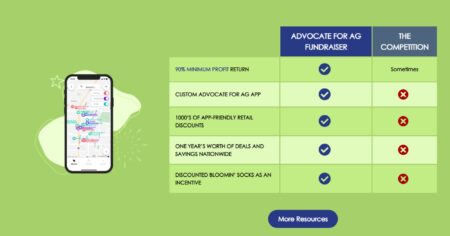This month, the U.S. Environmental Protection Agency advanced approval of two new crop protection products, cyclobutrifluram and isocycloseram — causing a major backlash from environmental activists concerned over claims that these pesticides use PFAS, better known as “forever chemicals.”
But, the devil is in the details, and claims don’t always mesh with reality.
Cyclobutrifluram is a nematicide/fungicide for use on turf, ornamentals, and romaine lettuce, as well as cotton and soybean seed. The EPA said no human-health risks of concern were identified when this pesticide is used according to the label. Isocycloseram is a broad-spectrum contact insecticide which would be used on agricultural crops, turf, and ornamentals, as well as indoor and outdoor uses for commercial, industrial and domestic sites. Again, the EPA said no human-health risks were identified.
Both products contain fluorinated carbon, which is a component of a category of perf- and polyfluoroalkyl substances, better known as PFAS. PFAS are long-lasting chemicals and components that break down very slowly over time. According to the government, many PFAS are found in the blood of people and animals all over the world and are present at low levels in a variety of food products and in the environment.
Yet, there’s a big “but” to this issue, as there often is.
According to Chemical & Engineering News, the EPA’s Office of Pesticide Programs considers PFAS to be chemicals containing at least two saturated, fully fluorinated carbons, either CF2 or CF3. The France-based Organisation for Economic Co-operation and Development (OECD) defines PFAS as any chemical with at least one saturated CF2 or CF3. The European Union has adopted a definition that is closer to that recommended by the OECD.
Under the EPA’s definition, the new pesticides are not considered to be PFAS, said Ed Messina, director of the EPA’s pesticides office. That doesn’t mean activists will be satisfied with that response.

Vocal opposition to these pesticide approvals is coming from the Center for Biological Diversity and the Environmental Working Group, both of which have a long history of opposing agricultural innovations that are not organic.
“To approve more PFAS pesticides amid the growing awareness of the serious, long-term dangers from these forever chemicals is absurdly shortsighted,” Nathan Donley, environmental health science director at the Center for Biological Diversity, said in a statement. “The undeniable reality is that the Trump administration is knowingly putting the nation’s children at greater risk of developing serious reproductive and liver harms for generations to come.”
The center explained that isocycloseram, specifically, can cause reduced testicle size, lower sperm count, and liver toxicity in people. However, the center also admitted that “people would not be exposed to enough isocycloseram in their diet to cause these harms.”
The EPA said it has conducted human health and ecological risk assessments as well as a biological evaluation under the Endangered Species Act to support the registration of isocycloseram. Other risk assessments and evaluations were conducted for cyclobutrifluram as well by federal researchers.
The EWG is adding to the discussion by trying to raise alarms that PFAS are becoming more common in modern crop protection products. Last week, the organization released a report that showed that an average of 2.5 million pounds of products containing PFAS are sprayed on California crop fields. The state has 24.2 million acres of farmland in all, translating to a bit more than 0.1 pound per acre.
“Every pound of forever chemicals used on farmland presents a risk of contamination of our food, our water and soil. It doesn’t make sense when plenty of non-PFAS pesticides are readily available,” said Jared Hayes, EWG senior policy analyst and co-author of the report.
The EWG often uses California as its measuring stick because of the state’s stricter standards in terms of labeling carcinogens and regulating safety levels in food.
The approval of these new pesticides is believed to be part of an EPA effort to remove some of the backlog it is facing in terms of reviewing and, if appropriate, registering new agricultural products for the market.













